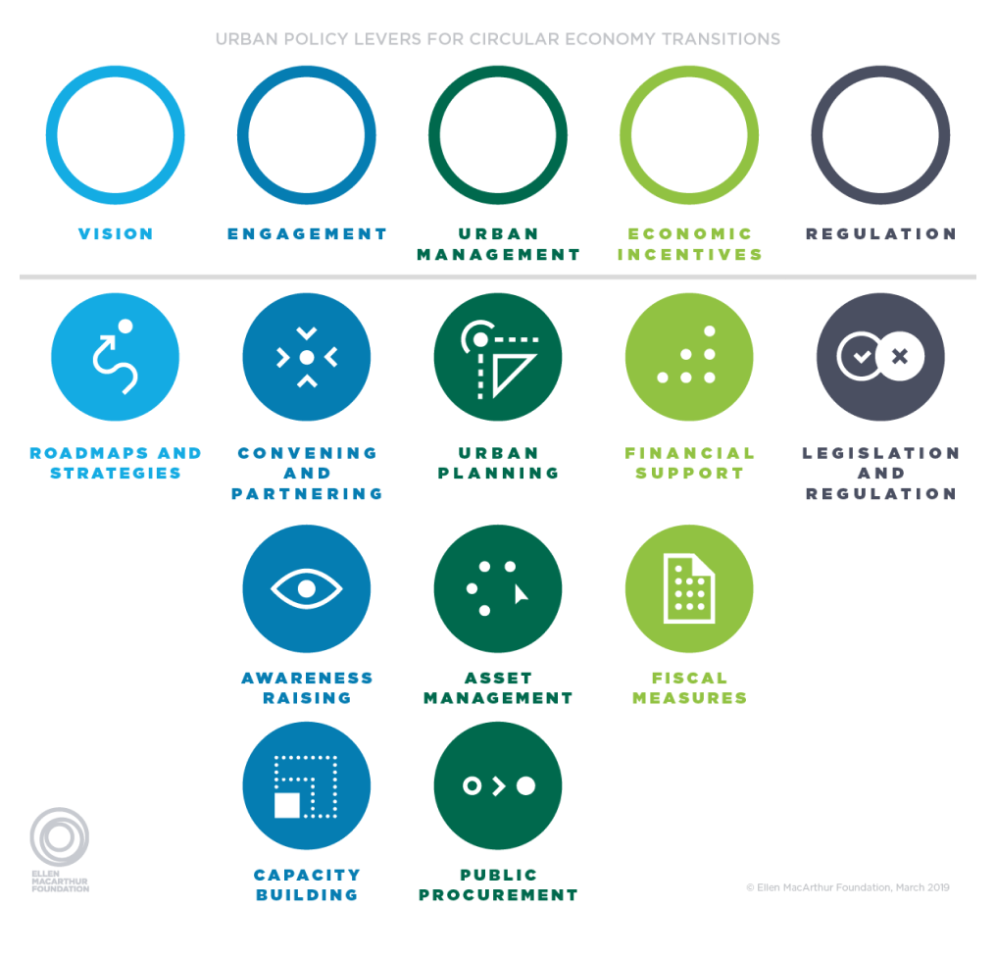Governments, including city governments, can set the enabling conditions for circular economycircular economyA systems solution framework that tackles global challenges like climate change, biodiversity loss, waste, and pollution. It is based on three principles, driven by design: eliminate waste and pollution, circulate products and materials (at their highest value), and regenerate nature. transitions.
At least ten urban policy levers exist that city governments can use to address the challenges of a take-make-waste linear economylinear economyAn economy in which finite resources are extracted to make products that are used - generally not to their full potential - and then thrown away ('take-make-waste'). in cities.
In recent years, cities have become bolder in leading change. The use of circular economy principles can help nurture economic innovations that deliver on urban needs and eliminate structural and physical waste. The paper addresses questions such as:
Why are cities centres for change and what role do city governments play?
Which urban policy levers can help enable circular economy transitions in cities?
How can city government cultures and approaches support such a transition?
In the paper, downloadable below, over 100 cases from more than 70 cities around the world are used to provide short, practical examples of the various policy measures city governments can use to bring about circular economy transitions.
Urban policy levers for circular economy transitions

Infograpghic published by the Ellen MacArthur Foundation
Many policy levers are strongly interlinked. To deliver any given policy measure, several policy levers can be used in conjunction. The autonomy and scope to use these policy levers varies from city to city. Some cities will have a greater ability to use certain policy levers than others.
Across cities, no single policy measure can deliver a complete circular economy transition. Each measure is a step along the way. What is clear is that city governments have a key role to play.
This work builds on Delivering the circular economy: A toolkit for policymakers.





